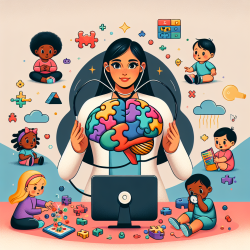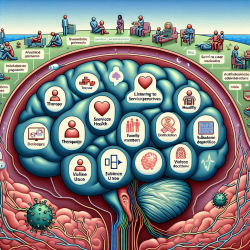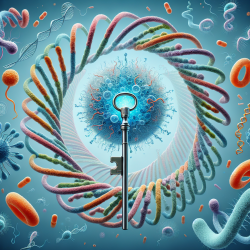Introduction to Developmental Cognitive Neuroscience
Developmental Cognitive Neuroscience (DCN) is a multidisciplinary field that delves into how the human brain and behavior evolve throughout life, with a particular focus on infancy, childhood, and adolescence. This research area is crucial for practitioners in speech-language pathology and other therapeutic disciplines, as it provides a foundation for understanding the neural and cognitive development of children.
Key Findings from "The Developing Human Brain: A Frontiers Research Topic"
The research article "The Developing Human Brain: A Frontiers Research Topic" offers a comprehensive overview of recent advances in DCN. Here, we explore several key findings and their implications for practitioners:
- Perceptual Development: Contrary to popular belief, perceptual development extends beyond the early years of life. This finding suggests that therapy should be adaptable to support ongoing perceptual growth, particularly in areas like face processing and emotion recognition, which are vital for social functioning.
- Neural Changes and Behavior: The research highlights two significant neural changes: the processing of rewards and feedback, and cognitive control or executive function. These insights can inform strategies to enhance motivation and self-regulation in children, crucial components of effective therapy.
- Brain Networks and Genetic Influences: Understanding how genetic variations and hereditary disorders influence brain networks can help tailor therapeutic interventions to individual needs, improving outcomes for children with neurodevelopmental disorders.
- Societal Influences: The exploration of societal factors, such as socioeconomic status and childhood adversity, underscores the importance of considering environmental contexts in therapy. Tailoring interventions to address these influences can lead to more holistic and effective approaches.
Practical Applications for Practitioners
Practitioners can leverage these insights to refine their therapeutic approaches:
- Personalized Therapy Plans: By understanding the ongoing nature of perceptual development, practitioners can create personalized therapy plans that evolve with the child's developmental stage.
- Incorporating Motivational Strategies: Utilizing knowledge about reward processing and cognitive control, therapists can integrate motivational strategies that enhance engagement and self-regulation.
- Contextual Considerations: Recognizing the impact of societal influences, therapists should consider the child's environment and background, adapting interventions to address these factors.
Encouraging Further Research
The field of DCN is rapidly evolving, and practitioners are encouraged to stay informed about the latest research. Engaging with ongoing studies can provide new insights and techniques to improve therapy outcomes. By fostering a culture of continuous learning, practitioners can ensure they are providing the most effective support for children.
To read the original research paper, please follow this link: The Developing Human Brain: A Frontiers Research Topic.










